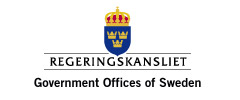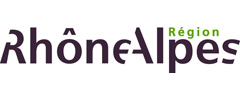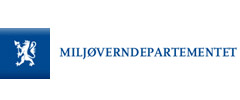SIN List 2.0 targets endocrine disrupting chemicals for priority action in the EU
ChemSec stated in press release today launch of a concrete tool for action on highly problematic endocrine disrupting chemicals.
03.05.2011 |Johanna Hausmann
Endocrine disrupting chemicals (EDCs) can interfere with our hormone system and have been increasingly linked to a range of health problems including cancer, diabetes, behavioural and attention deficit disorders, as well as impaired fertility. We are all exposed to a range of EDCs via everyday consumer products as well as via food and water. More information in the German publication "Endokrine Disruptoren – Gestörte Weiblichkeit"
– The EU has the ambition to tackle the threat of EDCs but has so far not properly regulated their use. It is time to overcome this deadlock in European regulation and start acting, says Per Rosander, ChemSec director.
In the EU chemicals regulation REACH, all 27 member states have agreed that the use of Substances of Very High Concern (SVHC)[i] should be strictly limited. However, the processes for doing so are moving very slowly and currently, only 46 chemicals have been officially identified as SVHCs and put on the REACH candidate list. None of them have been selected specifically for their endocrine disrupting properties.
– According to REACH, endocrine disruptors are as worrisome as other SVHCs which cause cancer, birth defects and which persist in the environment and accumulate in our bodies. We strongly encourage the European Commission and EU member states to start nominating EDCs to the REACH candidate list. This latest update of the SIN List gives guidance on where to start, says Jerker Ligthart, ChemSec project coordinator.
The SIN List 2.0 [ii], adding 22 Substances of Very High Concern identified solely due to their endocrine disrupting properties, will be presented today at a public hearing on EDCs in Brussels. At this event business representatives from IKEA, Boots and the investment rating agency MSCI will describe how they work to limit the use of EDCs in consumer products and how the SIN List is a tool in this effort. Scientists and representatives from the European Commission and EU member states will discuss ways forward in an open debate.[iii]
– Endocrine disrupting chemicals are commonly used in many consumer products, and companies closest to the end-user and consumer knows that things have to change. We are convinced that the 2.0 update of the SIN List will further facilitate companies’ efforts to substitute high concern chemicals, says Per Rosander.
For more information, please contact:
Per Rosander, director, ChemSec
per.rosander@chemsec.org, + 46 702 09 23 79
Jerker Ligthart, SIN project coordinator, ChemSec
jerker.ligthart@chemsec.org, +46 31 711 01 52
Frida Hök, EDC project coordinator, ChemSec
frida.hok@chemsec.org, + 46 709 72 12 57
More information:
www.chemsec.org/list/sin-list-20
Notes for editors
ChemSec, the International Chemical Secretariat, is a non-profit organisation working for a toxic free world by highlighting the health and environmental risks of hazardous substances, make accurate, science-based information readily available, engage business and speed up legislative processes. ChemSec was founded in 2002 by environmental organisations and is funded by grants from authorities and foundations. Please visit us at www.chemsec.org.
The SIN List (Substitute It Now!) was launched in 2008 by ChemSec in cooperation with other NGOs (see below). The SIN List applies REACH’s own criteria to identify Substances of Very High Concern, and with the 2.0 update encompasses 378 chemicals. The purpose of the SIN List is to speed up the REACH process and give guidance to companies on which chemicals they need to substitute. www.sinlist.org.
The SIN List project is guided by a NGO Advisory Committee made up of European Environmental Bureau (EEB), WWF European Policy Office, Greenpeace European Unit, Friends of the Earth Europe (FoEE), Instituto Sindical de Trabajo, Ambiente y Salud (ISTAS), Women in Europe for a Common Future (WECF), Health and Environment Alliance (HEAL), European Consumers’ Organisation (BEUC), and Center for International Environmental Law (CIEL).
[i] EU chemicals regulation REACH states that Substances of Very High Concern are substances that are either 1) carcinogenic, mutagenic, or toxic for reproduction, (CMR substances), 2) persistent, bioaccumulative and toxic (PBT substances), or 3) “substances, such as those having endocrine disrupting properties […] which give raise to an equivalent level of concern” (REACH article 57).
[ii] The newly added endocrine disrupting chemicals on the SIN List 2.0 includes e.g. phthalates used to make plastic soft, parabens used as preservatives in many cosmetic and personal care products and UV filters used in sunscreens and food packaging. These substances are also found in inks for printing, paints, gasoline, preserved wood and breast implants, as well as being used in processes such as dry cleaning and leather treatment.
[iii] Invitation and agenda for the public hearing on EDCs at Stanhope hotel, Brussels, 3 May 9-16.30, can be found at www.chemsec.org/public-hearing-edc. The SIN List 2.0 update will be presented at 11.30, and journalists are invited to a press conference at 13.15, where ChemSec acting director Per Rosander and other speakers will be available for questions.
Related News
Congratulations Sascha!
Named thirty-third most influential sustainability fighter in the Netherlands
08.10.2018
Priority Actions to Increase Access to Climate Finance for Non-State Actors
SB48 side event: 7 May 2018 at 16:45 CEST in room 181, UNFCCC, Bonn
03.05.2018
Call for Action on Gender and a Pollution Free Planet
UNEA-3 meeting of Women Ministers and Leaders presents Call for Action
09.01.2018
PRESS CONFERENCE: Gender Just Climate Solutions
Watch the press conference hosted today during UNFCCC's Gender Day at the climate negotiations in Bonn (COP23)
14.11.2017
Icons of sustainability: climate change resistance as an art form
Bonn, Gender Just Climate Solutions opening ceremony, coordinated by WECF on behalf of the Women & Gender Constituency's
11.11.2017





































